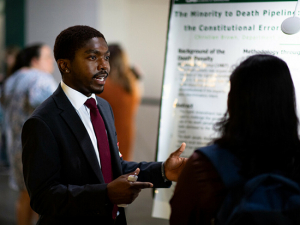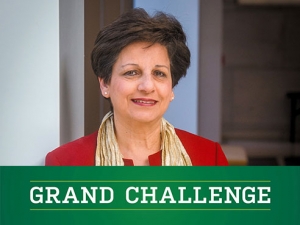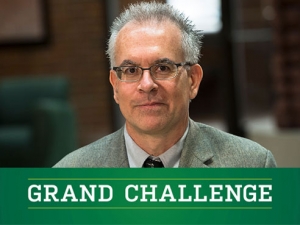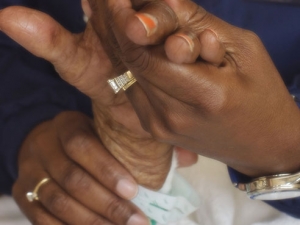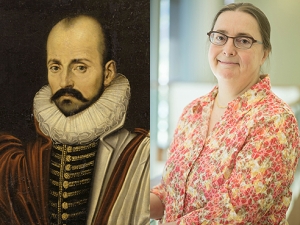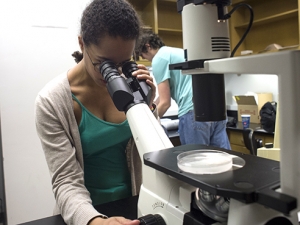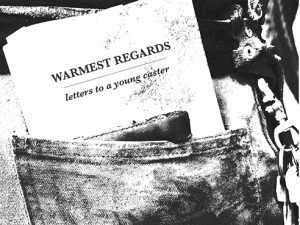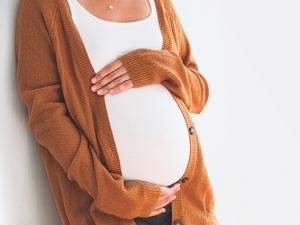 Paula Chandler-LaneyNine researchers are halfway to the prize money for their winning entries in the annual Creativity is a Decision Awards, sponsored by UAB’s Nutrition Obesity Research Center.
Paula Chandler-LaneyNine researchers are halfway to the prize money for their winning entries in the annual Creativity is a Decision Awards, sponsored by UAB’s Nutrition Obesity Research Center.
The competition encourages submission of the most creative ideas for obesity-related research proposals by graduate students, postdoctoral fellows, faculty and staff. To collect prize money, winners must submit their proposal to an extramural sponsoring authority by Nov. 5.
The selected faculty will receive $5,000 for their winning proposals:
- Paula Chandler-Laney, Ph.D., assistant professor, Department of Nutrition Sciences, “Eating phenotype of children exposed to over-nutrition in utero”
An increasing amount of research suggests that events during pregnancy and infancy may influence a child’s risk for obesity. Although we don’t fully understand why, there is research from animal models linking some of the early-life risk factors to general over-eating in the offspring or over-eating only when very palatable/yummy food is provided. If the same is true in humans, then we might be able to see some differences in eating behavior when children are very young — before they gain excess weight.
 Martin YoungThis study is novel because rather than focusing on the absolute amount of food a child is eating, which is quite challenging to measure, Chandler-Laney will focus on whether eating habits might make them susceptible to over-eating and subsequently overweight. For example, if children are impulsive, they might eat food when it is available, rather than when they are hungry.
Martin YoungThis study is novel because rather than focusing on the absolute amount of food a child is eating, which is quite challenging to measure, Chandler-Laney will focus on whether eating habits might make them susceptible to over-eating and subsequently overweight. For example, if children are impulsive, they might eat food when it is available, rather than when they are hungry.
- Aaron Fobian, Ph.D., assistant professor, Department of Psychiatry, “A sleep and media intervention to improve adolescents’ metabolic health and weight status”
Due to increasing obesity and the marginal success of treatments, new strategies for need to be assessed that expand interventions beyond caloric intake and physical activity. Although the association between sleep and obesity has long been recognized, questions remain about the causal pathway and the effectiveness of incorporating sleep into obesity interventions. This study assesses the effectiveness of a four-week sleep and media-use intervention on improving metabolic health and weight of adolescents.
- Martin Young, D.Phil, associate professor, Department of Medicine, “At the heart of dietary lipid-sensing”
 Aaron FobianThe mechanisms by which the body senses dietary glucose are well established, involving organs such as the liver and pancreas. In contrast, the manner with which dietary lipid is sensed is less well understood. Young proposes a novel mechanism for dietary lipid-sensing, that involves the heart. More specifically, he hypothesizes that the heart rapidly senses chylomicrons (i.e., dietary lipid) and sends signals to the rest of the body that a lipid-rich meal has been consumed.
Aaron FobianThe mechanisms by which the body senses dietary glucose are well established, involving organs such as the liver and pancreas. In contrast, the manner with which dietary lipid is sensed is less well understood. Young proposes a novel mechanism for dietary lipid-sensing, that involves the heart. More specifically, he hypothesizes that the heart rapidly senses chylomicrons (i.e., dietary lipid) and sends signals to the rest of the body that a lipid-rich meal has been consumed.
The selected postdoctoral fellows will receive $2,500 for their winning proposals:
- Stephen J. Carter, Ph.D., Out of thin air: An obesity intervention through hypoxia-inducible factor activation;
- Dwight Lewis, Ph.D., Social positioning, the environment and energy intake among black men; and
- Greg Pavela, Ph.D., Gender and food selection under stress
The selected predoctoral students will receive $1,000 for their winning proposals:
- Adele Fowler, Effects of dietary coconut oil on body composition and liver function in a zebrafish model;
- Stacie Totsch, Activating brown adipose tissue as a means to combat obesity through natural processes provides a unique potential for interventions;
- Himel Mallick, Effectively selecting a target population for a future clinical trial of weight-loss.
